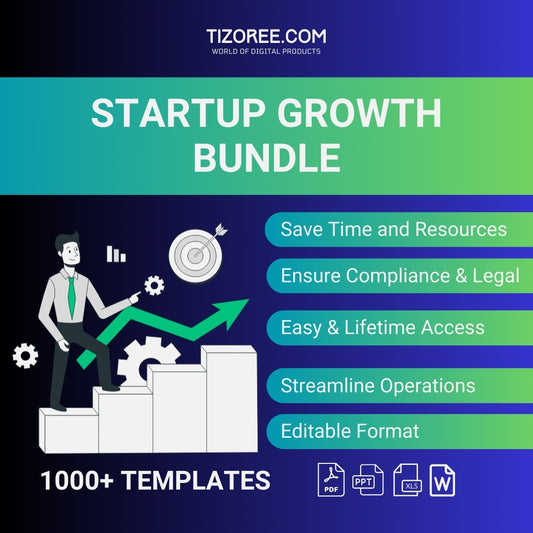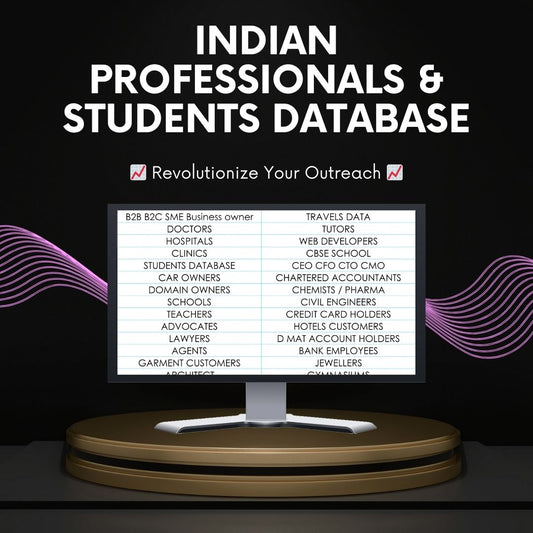2024 में वर्डप्रेस और वूकॉमर्स का उपयोग करें: क्या यह इसके लायक है?
शेयर करना
वेब डेवलपमेंट की तेज़ रफ़्तार दुनिया में, हम जो टूल और प्लेटफ़ॉर्म चुनते हैं, वे हमारी सफलता को काफ़ी हद तक प्रभावित कर सकते हैं। WordPress और WooCommerce लंबे समय से वेबसाइट बनाने के लिए मुख्य उपकरण रहे हैं, खासकर ब्लॉग और ई-कॉमर्स के लिए। हालाँकि, AI और नई तकनीकों के उदय के साथ, यह मूल्यांकन करना ज़रूरी है कि क्या ये प्लेटफ़ॉर्म 2024 में आपकी ज़रूरतों के लिए सबसे अच्छा विकल्प बने रहेंगे। यह ब्लॉग वेब डेवलपमेंट के विकसित होते परिदृश्य पर विचार करते हुए WordPress और WooCommerce का उपयोग करने के फ़ायदे और नुकसान की पड़ताल करता है।
वर्डप्रेस की शक्ति
वर्डप्रेस वर्तमान में सभी वेबसाइटों में से लगभग 40% को संचालित करता है, जो इसकी लोकप्रियता और विश्वसनीयता को दर्शाता है। यह ओपन-सोर्स प्लेटफ़ॉर्म उपयोगकर्ताओं को यह समझने की अनुमति देता है कि उनका डेटा कैसे प्रबंधित किया जाता है, पारदर्शिता प्रदान करता है जो कई अन्य प्लेटफ़ॉर्म में नहीं है। इसके अलावा, वर्डप्रेस के पीछे व्यापक समुदाय का मतलब है कि समस्याओं का सामना करने वालों के लिए सहायता और ट्यूटोरियल आसानी से उपलब्ध हैं।
स्केलेबिलिटी वर्डप्रेस का एक और महत्वपूर्ण लाभ है। यह लाखों उपयोगकर्ताओं को संभाल सकता है, जिससे यह तेजी से विकास या उच्च ट्रैफ़िक की उम्मीद करने वाले व्यवसायों के लिए उपयुक्त विकल्प बन जाता है। हालाँकि, इन खूबियों के बावजूद, व्यावसायिक वेबसाइटों के लिए वर्डप्रेस का उपयोग करने पर पुनर्विचार करने के कुछ कारण हैं, जिन्हें आगे खोजा जाएगा।
एआई और नई प्रौद्योगिकियों का उदय
AI टूल और प्लेटफ़ॉर्म के उद्भव ने वेब डेवलपमेंट को बदल दिया है। उदाहरण के लिए, GitHub Copilot उपयोगकर्ताओं को कोडिंग ज्ञान के बिना भी तेज़ी से वेबसाइट बनाने में सक्षम बनाता है। यह प्रवृत्ति सवाल उठाती है: क्या वर्डप्रेस सीखना अभी भी एक मूल्यवान निवेश है?
जबकि व्यावसायिक वेबसाइटों की मांग बढ़ती जा रही है, कई स्थापित व्यवसाय वर्डप्रेस के लिए प्रतिबद्ध हैं। इन कंपनियों को अक्सर अपनी साइटों को बनाए रखने के लिए कुशल तकनीशियनों की आवश्यकता होती है, क्योंकि वर्डप्रेस के भीतर व्यापक कार्यक्षमता बनाने के बाद दूसरे प्लेटफ़ॉर्म पर माइग्रेट करना चुनौतीपूर्ण हो सकता है।
वूकॉमर्स का मामला
वर्डप्रेस के लिए एक प्लगइन, वूकॉमर्स, उपयोगकर्ताओं को ई-कॉमर्स वेबसाइट को तेज़ी से सेट करने की अनुमति देता है। उपयोग में आसानी और व्यापक दस्तावेज़ीकरण इसे कोडिंग से अपरिचित लोगों के लिए विशेष रूप से आकर्षक बनाता है। हालाँकि, जैसे-जैसे नेक्स्ट.जेएस और डीजेंगो जैसी नई तकनीकें उभरती हैं, डेवलपर्स के पास अनुकूलित और शक्तिशाली एप्लिकेशन बनाने के लिए अधिक विकल्प होते हैं।
जो लोग अपनी कोडिंग क्षमताओं में आश्वस्त हैं, उनके लिए Next.js जैसे फ्रेमवर्क वर्डप्रेस की तुलना में अधिक नियंत्रण और लचीलापन प्रदान कर सकते हैं। हालाँकि वर्डप्रेस अनुकूलित और उपयोगकर्ता के अनुकूल है, लेकिन डेवलपर्स को अधिक जटिल परियोजनाओं के लिए यह सीमित लग सकता है।
वर्डप्रेस और वूकॉमर्स का उपयोग कब करें
वर्डप्रेस उन लोगों के लिए एक बेहतरीन विकल्प है जिनके पास कोडिंग कौशल की कमी है या जिनके पास डेवलपर तक पहुंच नहीं है। इसे सेट अप करना आसान है और वेबसाइट बनाने के लिए यह एक किफ़ायती समाधान प्रदान करता है। इसके अतिरिक्त, यदि आपकी वेबसाइट कोई दूसरा उद्देश्य पूरा करती है, जैसे कि आपकी ऑनलाइन उपस्थिति को बढ़ाना या बुनियादी जानकारी प्रदान करना, तो वर्डप्रेस एक उपयुक्त विकल्प है।
यह प्लेटफ़ॉर्म बहुत महंगा नहीं है, और इसका एडमिन पैनल उपयोगकर्ता के अनुकूल है, जिससे उपयोगकर्ता कुछ ही दिनों में मूल बातें सीख सकते हैं। प्लगइन्स के माध्यम से अनुकूलन भी सरल है, जिससे यह बिना तकनीकी पृष्ठभूमि वाले व्यक्तियों के लिए सुलभ हो जाता है।
वर्डप्रेस का उपयोग कब न करें
अगर आपकी वेबसाइट आपके व्यवसाय के लिए केंद्रीय है और आप महत्वपूर्ण वृद्धि की उम्मीद करते हैं, तो वर्डप्रेस पर निर्भर रहना सबसे अच्छा विकल्प नहीं हो सकता है। जैसे-जैसे आपका व्यवसाय बढ़ता है, आपको उपलब्ध प्लगइन्स के साथ सीमाओं का सामना करना पड़ सकता है या नई सुविधाओं को एकीकृत करने में चुनौतियों का सामना करना पड़ सकता है। इसके अतिरिक्त, तृतीय-पक्ष प्लगइन्स पर निर्भरता आपकी वेबसाइट के प्रदर्शन के लिए जोखिम पैदा कर सकती है।
कई प्लगइन्स ऑप्टिमाइज़ नहीं किए जा सकते हैं, जिससे साइट की गति धीमी हो सकती है और संभावित डाउनटाइम हो सकता है। यदि आपका व्यवसाय राजस्व के लिए आपकी वेबसाइट पर निर्भर है, तो एक संक्षिप्त आउटेज भी हानिकारक हो सकता है। गंभीर व्यवसायों के लिए, कस्टम समाधान बनाने के लिए डेवलपर को काम पर रखना एक बेहतर दीर्घकालिक निवेश हो सकता है।
प्लगइन ओवरलोड के जोखिम
वर्डप्रेस के साथ, कार्यक्षमता बढ़ाने के लिए कई प्लगइन्स इंस्टॉल करना आसान है। हालाँकि, इससे प्लगइन ओवरलोड हो सकता है, जो आपकी साइट को धीमा कर सकता है और संगतता समस्याएँ पैदा कर सकता है। यदि कोई प्लगइन विफल हो जाता है या पुराना हो जाता है, तो यह आपकी पूरी साइट को क्रैश कर सकता है, जिससे आपको उस समय कोई कार्यशील वेबसाइट नहीं मिलेगी जब आपको इसकी सबसे अधिक आवश्यकता होती है।
इसके अलावा, प्लगइन्स पर निर्भरता का मतलब है कि आपकी वेबसाइट का प्रदर्शन बाहरी डेवलपर्स की गुणवत्ता पर निर्भर है। यदि कोई प्लगइन डेवलपर अपने उत्पाद का समर्थन बंद करने का फैसला करता है, तो आपको अपनी साइट को बनाए रखने में महत्वपूर्ण चुनौतियों का सामना करना पड़ सकता है।
वैकल्पिक प्रौद्योगिकियाँ
डेटा-भारी उद्योगों में काम करने वाले या उन्नत कार्यक्षमताओं की आवश्यकता वाले लोगों के लिए, Django या React जैसी वैकल्पिक तकनीकें अधिक उपयुक्त हो सकती हैं। ये फ्रेमवर्क डेटा विज्ञान अनुप्रयोगों के लिए मजबूत समाधान प्रदान करते हैं, जिससे डेवलपर्स को शक्तिशाली लाइब्रेरी का लाभ उठाने में मदद मिलती है जो PHP में उपलब्ध नहीं हैं।
कस्टम-निर्मित समाधान में निवेश करने से अधिक नियंत्रण मिल सकता है, जिससे व्यवसायों को वर्डप्रेस के नुकसानों से बचने में मदद मिलती है और साथ ही वे अपने लक्ष्य भी प्राप्त कर सकते हैं। जबकि शुरुआती सेटअप के लिए अधिक समय और संसाधनों की आवश्यकता हो सकती है, लेकिन दीर्घकालिक लाभ लागतों से अधिक हो सकते हैं।
निष्कर्ष: सही चुनाव करना
संक्षेप में, वर्डप्रेस और वूकॉमर्स कई उपयोगकर्ताओं के लिए प्रासंगिक और शक्तिशाली उपकरण बने हुए हैं, खासकर उन लोगों के लिए जो त्वरित और सरल समाधान चाहते हैं। हालाँकि, विकास के लिए तैयार व्यवसायों या उन्नत कार्यक्षमता की आवश्यकता वाले लोगों के लिए, वैकल्पिक तकनीकों की खोज करना अधिक विवेकपूर्ण मार्ग हो सकता है।
अगर आप शुरुआत कर रहे हैं और आपको एक सीधी-सादी वेबसाइट की ज़रूरत है, तो वर्डप्रेस आपका सबसे अच्छा दोस्त हो सकता है। हालाँकि, जैसे-जैसे आपका व्यवसाय विकसित होता है, इस बात पर विचार करें कि क्या वर्डप्रेस की सीमाएँ लंबे समय में आपकी सफलता में बाधा बन सकती हैं। अंततः, वर्डप्रेस और अन्य तकनीकों के बीच चुनाव आपकी विशिष्ट आवश्यकताओं, संसाधनों और भविष्य के लक्ष्यों पर आधारित होना चाहिए।
पढ़ने के लिए धन्यवाद! यदि आपके पास 2024 में वर्डप्रेस या वूकॉमर्स का उपयोग करने के बारे में कोई प्रश्न या टिप्पणी है, तो नीचे अपने विचार साझा करने के लिए स्वतंत्र महसूस करें।



